Allahumma Inni As Alukal Huda In Arabic, Meaning And Benefits
Advertisements
Allahumma inni as alukal huda is an authentic and powerful Dua from the Sunnah of Prophet Muhammad SAW.
It is a dua to ask Allah guidance, piety, chastity and contentment. Have you ever heard this dua and wondered what it means or how to write it in Arabic?
Well, you’re not alone. This beautiful supplication is often recited by Muslims and holds a deep and profound meaning.

Allahumma Inni As Alukal Huda Full Dua Meaning In English
Allahumma Inni As Alukal Huda literally means O Allah! I beseech You for guidance, piety, chastity and contentment.
Allahumma Inni As Aluka Huda In Arabic
Here is how to write this Dua in Arabic:
Advertisements
اللَّهُمَّ إِنِّي أَسْأَلُكَ الْهُدَى وَالتُّقَى وَالْعَفَافَ وَالْغِنَى
Transliteration/Pronunciation
Allahumma inni asalukal huda, wat tuqa, wal afafa, wal ghina.
Related hadith about this Dua.
Abdullah bin Masud reported:
The Prophet SAW used to supplicate (make Dua):
“Allahumma inni asalukal huda, wat tuqa, wal afafa, wal ghina. (O Allah! I beseech You for guidance, piety, chastity and contentment).”
[Muslim]
Advertisements
RELATED POSTS:
- Allahumma a Inni Ala Zikrika Wa Shukrika
- Allahumma Zidna Wala Tanqusna Wa Akrimna
- Allahumma Rabbanasi Adzhibil Meaning And In Arabic Text
The Prophet SAW would ask His Lord for these four things:

Allahumma Inni As Aluka Al Huda “O Allah, I ask you for guidance”.
So it begins by asking Allah (Guidance), which is the greatest need of the servants, indispensable to them in this abode.
As for guidance: is the need for guidance, and it is a comprehensive word that deals with everything that should be guided by the affairs of the world and the hereafter, such as good belief, righteous deeds, words, and morals.
Guidance, which refers to beneficial knowledge, is of two types:
- The guidance of knowledge and
- The guidance of action, which some people classify as the guidance of intent and the guidance of attainment.
So, a person is beseeching his Lord for these two matters whenever he asks Him for guidance; that is, he is asking Allah to teach him and aid him to act accordingly.
This is included in the word of Allah, the Exalted, in Surah Al Faatihah Aya number 6:
Guide us to the straight path.”
That is, guide us to goodness and aid us in implementing it.
This is because people can be classified into four with regard to this matter:
- The first: Allah has granted him knowledge and made it easy for him to implement it. This is the best of all the divisions.
- The second: he is deprived of both knowledge and action.
- The third: he is granted knowledge but deprived of action.
- The fourth: he is granted action but deprived of knowledge.
The best is the one who has been granted both knowledge and action.
This essence is captured in the supplication:
Allahummah dinee (O Allah guide me) or “Guide us to the straight path”.

As for the Al-taqwa: i.e. piety: it is a comprehensive word for doing what God commanded and leaving what He prohibited.
It means to protect you from polytheism, sins, vices of morals, and seeking chastity.
The origin of the word is Tawqi, which is to place protection between you and the punishment of God Almighty, and it is by doing acts of obedience and avoiding forbidden things.
Piety, Taqwaa, it is a comprehensive word that encompasses implementing what Allah, the most High, has commanded and abstaining from what He has forbidden.
It is taken from Al- Wiqaayaah, which means protection.
You will not be protected from the punishment of Allah except you act upon His orders and abstain from His prohibitions.
As for Chastity: It is to abstain from what is not permissible, and to protect oneself from worldly ambitions.
It includes chastity in all its forms fornication of all kinds: fornication of looking, fornication of touch, fornication of listening, and fornication of the vulva, and abstaining from Earning, forbidden livelihood.
And chastity: from illicit Haram relations.
This includes all its forms: sight, touch, the private parts and hearing.
This is because illegal relation is one of the most detestable practice, we seek Allah with refuge.
Allah, the most High, says:
And come not near to unlawful relationship for verily it is a Faahishah (i.e. a thing that transgresses its limit: a great sin)”
(Qur’an chapter 17: verse 32)
It is inimical to character, lineage, the heart and religion.
As for Al Ghina: It is the self-sufficiency in that the servant dispenses with people and what is in their hands, so the servant is dispensed with what God has given him, whether he is given a little or a lot, and this characteristic is loved by God Almighty.
The rich, the hidden, and the question of God (chastity and richness), and they are included in guidance and piety from the door of singularity after generalization, due to the greatness of their affair and the great need of creatures for them.
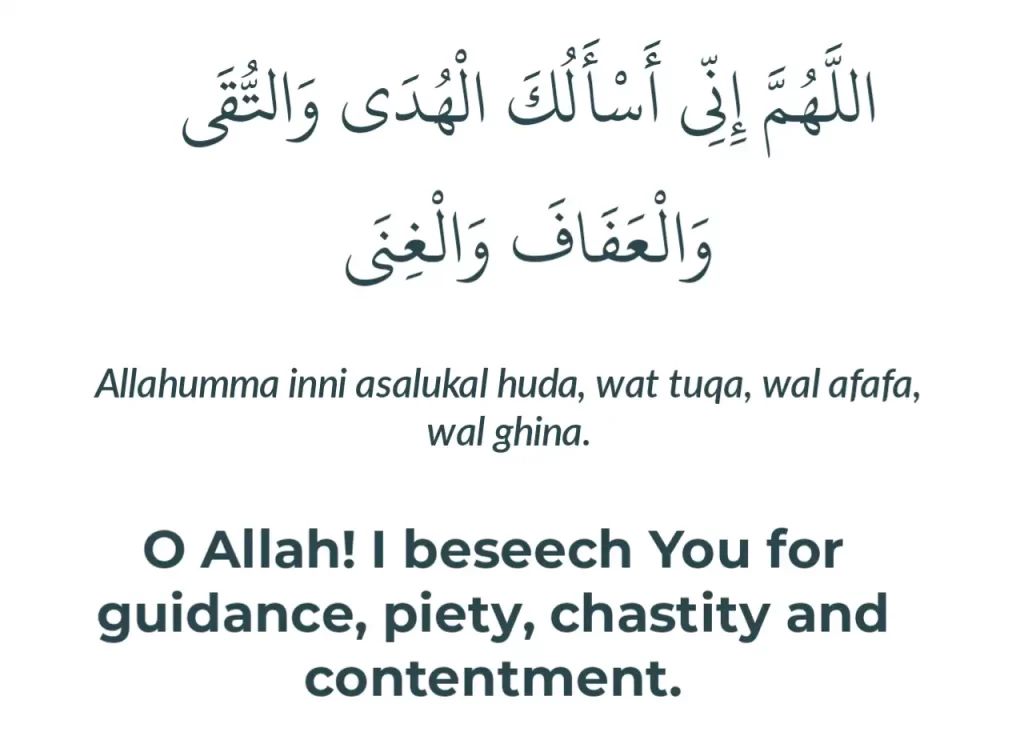
As for contentment, the intent is freedom of want from the creature.
This implies that one should be contented with what Allah has given him without considering what is in the hands of men regardless of the quantity that Allah bestowed on him.
Contentment is an unfading treasure.
Allah, the Most High, grants many people what is sufficient for them but you still find covetousness in their heart, and refuge is sought with Allah; they are always in need.
When you ask Allah for contentment, it is a plea that Allah, the Mighty and Sublime, should make you independent of humans based on contentment, and grant you wealth to achieve that.
Therefore, a person is expected to employ these four supplications as the Prophet SAW would supplicate.
Abd al-Rahman bin Nasser al-Saadi, may God have mercy on him, commented on this hadith, and he said:
This supplication is one of the most comprehensive and most beneficial supplications.
For it includes asking Allah for all what is good in this life and hereafter.
Thus, the religion is corrected, for religion is useful sciences and true knowledge, so it is (the guidance), and the observance of obedience to God and His Messenger, for it is the pious, and chastity.
With it the heart is sufficient, and thus the happiness of the worldly life, and the heart’s comfort, which is the good life, is completed.
So whoever is provided with guidance, piety, chastity, and wealth attains both happiness, attains all that is desired, and is saved from all fear.
This blessed supplication is one of the collections of words that were given to the Prophet Muhammad, may peace be upon him, in which the few words and premises, the abundance of meanings, the vastness of their connotations, and their purposes are combined in both worlds.
Read also Rabbi zidni ilma and la Hawla Wala Quwwata dua.
“Allahumma Inni As’Alukal Huda” is a supplication that can be recited at various times to seek guidance, righteousness, chastity, and self-sufficiency from Allah. While there isn’t a specific “best” time to recite it, you can do so in the following situations:
- During Daily Prayers (Salah): You can include this supplication in your daily prayers, such as during the Sujood (prostration) or after Tashahhud in any of the five daily Salah. It’s an excellent way to ask for guidance in your worship and life.
- In Times of Confusion: Whenever you find yourself facing a difficult decision or feeling uncertain about a matter, reciting “Allahumma Inni As’Alukal Huda” can help you seek Allah’s guidance and clarity.
- During Moments of Du’a (Supplication): You can recite this supplication during your personal moments of Du’a when you are communicating with Allah and seeking His assistance.
- During Moments of Reflection: Whenever you engage in self-reflection or introspection, you can recite this prayer to ask for guidance in leading a righteous and purposeful life.
Remember that the key to the effectiveness of this supplication is sincerity and a genuine desire for guidance. May Allah Grant Us Success.
Advertisements

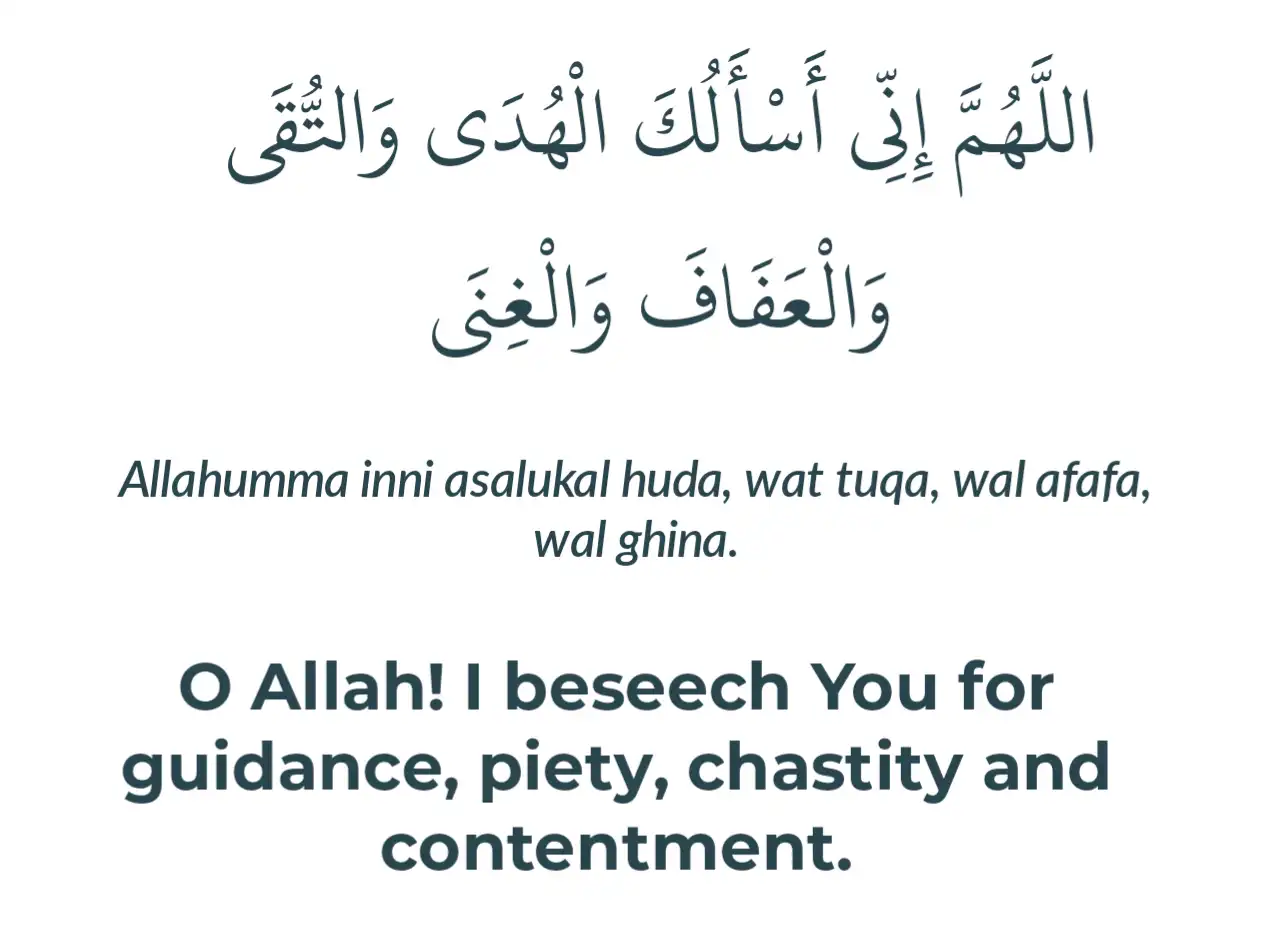
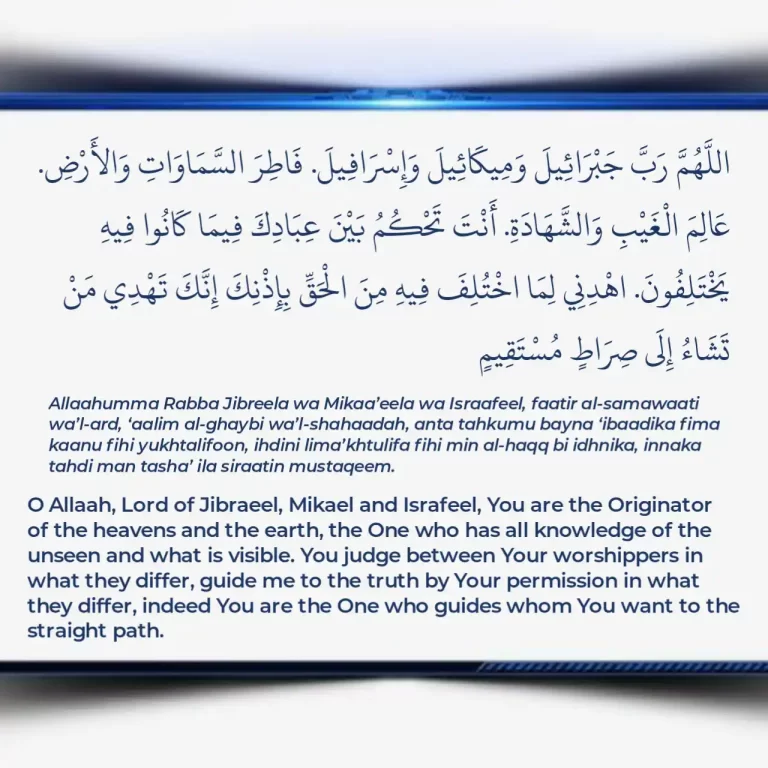
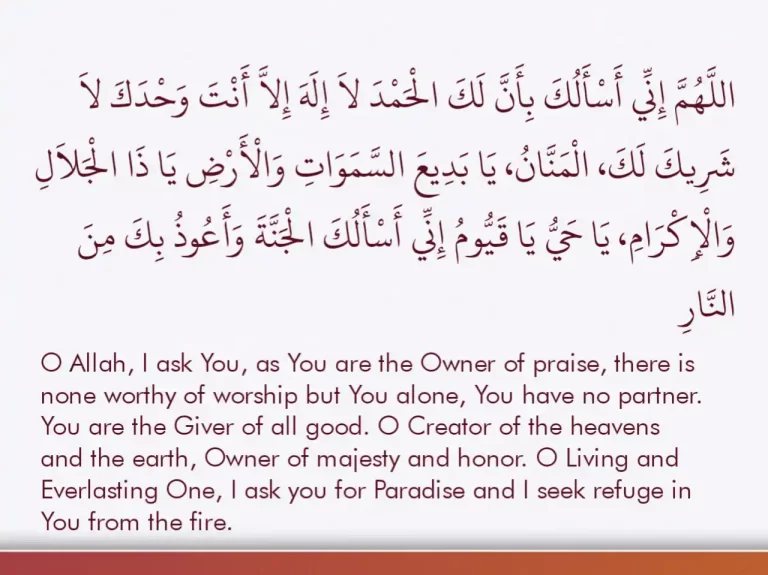


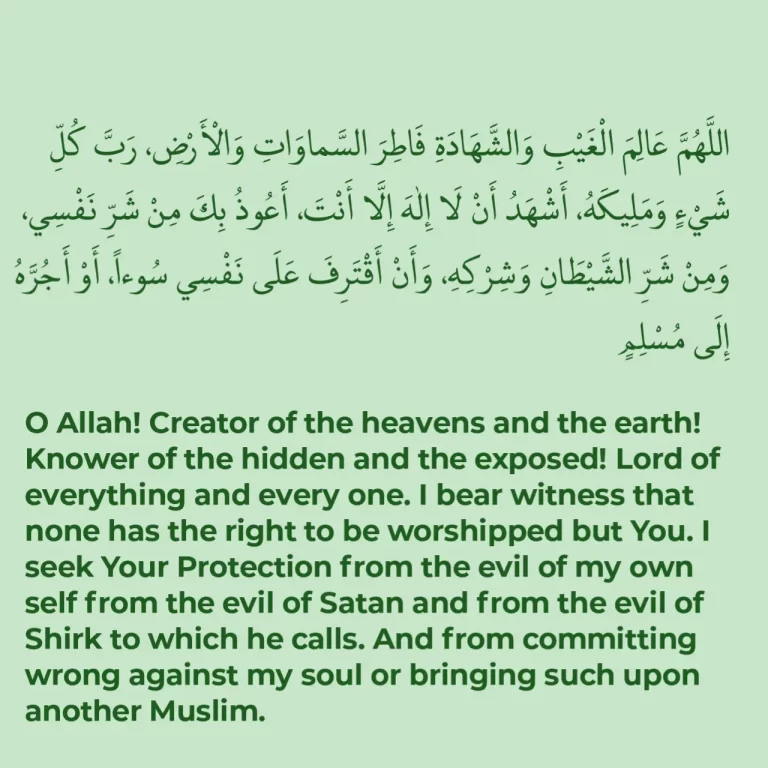
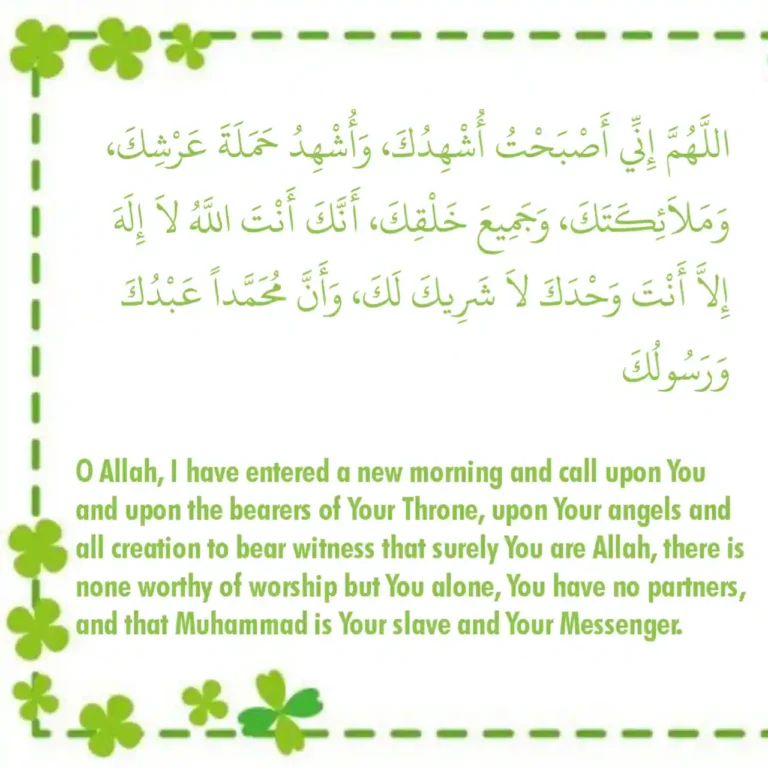
5 Comments